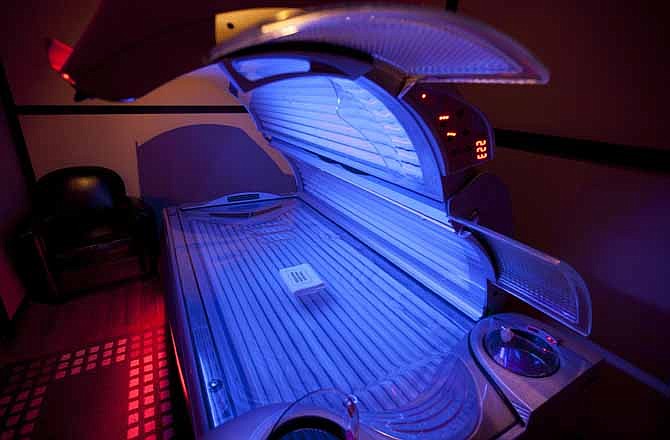Rep. Gary Cross is a cancer survivor whose 24-year-old daughter has also been diagnosed with pre-cancer cells.
Cancer prevention is close to his heart and a legislative issue for the Lee's Summit Republican.
He said his daughter's pre-cancer cells could be due in part to her using a tanning device at a young age, which spurred him to introduce a House bill aimed at changing Missouri's tanning laws.
Cross's House Bill 47, which was one of two tanning bills before the House health care policy committee Wednesday, would require any person younger than 17 years old to have written, in-person parental consent for the use of a tanning device in a business.
"Someone who tans is 75 percent more likely to get melanoma," Cross said.
Rep. Keith Frederick, chairman of the committee, said as a doctor, he's seen the implications of the disease.
"This is a deadly, serious thing that can transpire if not discovered and treated," said Frederick, R-Rolla.
Katelyn Davis, a fourth-year medical student at the University of Missouri-Kansas City, testified in favor of the bill. While she tanned in high school, she said she realized tanning was a bad decision after a cousin was diagnosed with cancer.
"Teens are not fully mature and can't make these informed decisions," she said. "This bill would allow parents and children to come together and make an informed decision."
Joseph Levy testified against the bill. He's a scientific adviser to the American Suntanning Association and the executive director of the International Smart Tan Network.
He said the association is opposed to the bill because of the context in which it was introduced.
Rep. Chris Kelly, D-Columbia, posed several questions to Levy regarding the risks of tanning compared with the risks of skin being exposed to sunlight.
Levy assured the committee that his organization's intent is not to cause harm.
"We do want to be constructive and not obstructionists," Levy said. "We support constructive regulation of this industry."
Though involving tanning devices, Rep. Jay Barnes' bill was slightly different than Cross' bill.
House Bill 72 would prohibit any person younger than 6 years old from using a tanning device or a guardian from allowing the use of a tanning device.
"I'd like to hear someone make the case that a tanning bed is an appropriate place for a 5-year-old," said Barnes, R-Jefferson City. "This bill is about protecting children and preventing the growth of a public health crisis."
Barnes didn't bring anyone to testify in favor of his bill, but everyone who testified in favor of Cross' legislation agreed they were in favor of Barnes'.
Frederick said the issues are ready to move forward.
Rep. Diane Franklin, R-Camdenton, said the bills need to satisfy both the sponsors and the industry.
"I really hope this is an issue we can move some of the emotion out of and come to a common ground on," Franklin said. "I think we all want people to behave with common sense as they approach this and be fully educated when they go to something elective like a tanning bed."

